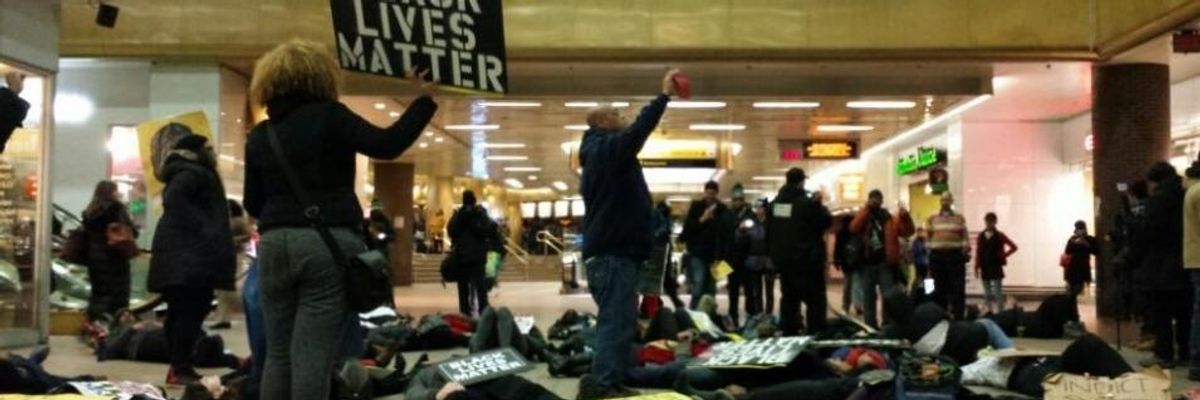Law enforcement agencies in New York City routinely used undercover officers to monitor, track, and provide real-time surveillance of Black Lives Matter activists and supporters, according to new reporting by The Intercept.
On the heels of previous revelations that the Department of Homeland Security has closely monitored the national movement which grew up in response to pervasive police violence and racial inequality, newly obtained documents from the Metropolitan Transit Authority and the Metro-North Railroad show that during local protests in New York City, over a three-month period that began in 2014 and ended in February of 2015, "counterterrorism agents and undercover officers" from those agencies coordinated with the NYPD to monitor activists and protest attendees--"tracking their movements and keeping individual photos of them on file."
As The Intercept's George Joseph reports:
This appears to be the first documented proof of the frequent presence of undercover police at Black Lives Matter protests in the city of New York, though many activists have suspected their presence since mass protests erupted there last year over a grand jury's decision not to indict Daniel Pantaleo, a police officer involved in the death of Eric Garner.
The protest surveillance and use of undercover officers raises questions over whether New York-area law enforcement agencies are potentially criminalizing the exercise of free speech and treating activists like terrorist threats. Critics say the police files seem to document a response vastly disproportionate to the level of law breaking associated with the protests.
The documents were released to activists after several requests under New York's Freedom of Information Law, which asked for records from the MTA, MTA Metro-North, the New York State Police, and the NYPD pertaining to Black Lives Matter protests at Grand Central Terminal between November 2014 and January 2015.
Though not surprising, the spying was met with derision by individual activists who were singled out by name in the documents.
Among those was Jose LaSalle, founder of New York police watchdog group Copwatch Patrol Unit. "I think its just another example of how anyone who is practicing their constitutional rights and speaking against the government is going to be considered a domestic problem," LaSalle told The Intercept. "It's sad because all we're doing is speaking because we feel there is no justice for people being brutalized by the system. It's sad we have to be targets of surveillance when were not committing crimes."
Because all of the officers names were redacted from the documents--and because the NYPD has so far refused to submit to the request or comment on the surveillance--it is impossible to know how pervasive the monitoring was or remains.
Reaction was also swirling on social media:
